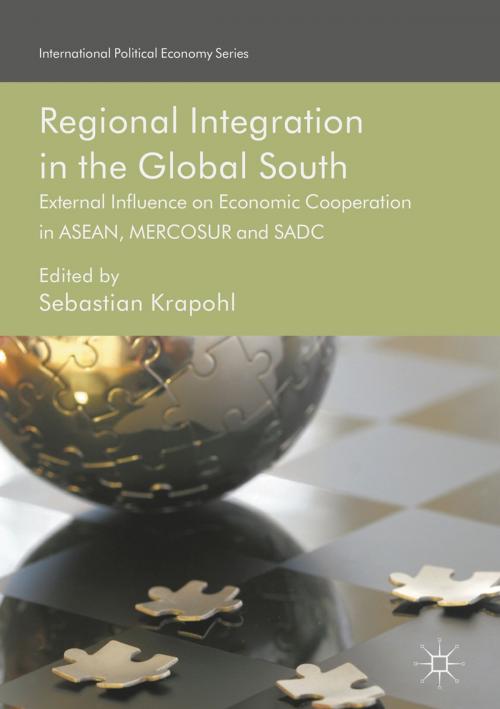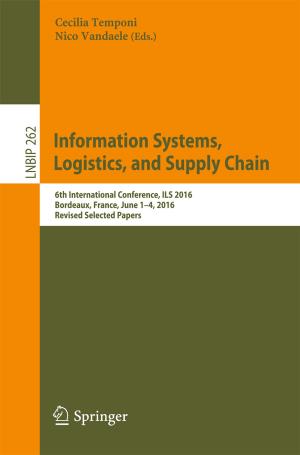Regional Integration in the Global South
External Influence on Economic Cooperation in ASEAN, MERCOSUR and SADC
Nonfiction, Social & Cultural Studies, Political Science, Politics, Economic Conditions, Social Science, Business & Finance| Author: | ISBN: | 9783319388953 | |
| Publisher: | Springer International Publishing | Publication: | November 23, 2016 |
| Imprint: | Palgrave Macmillan | Language: | English |
| Author: | |
| ISBN: | 9783319388953 |
| Publisher: | Springer International Publishing |
| Publication: | November 23, 2016 |
| Imprint: | Palgrave Macmillan |
| Language: | English |
This book presents a theory of economic integration in developing regions, where the level of intraregional economic interdependence is low and the dependence on extra-regional economic relations is high. It argues that the success or failure of regional integration in the Global South is to a large degree dependent on the reaction of extra-regional actors in Europe, North America and Northeast Asia. In doing so, it demonstrates that longstanding European integration theories cannot be successfully applied to other world regions, where economic conditions are fundamentally different. By providing detailed empirical analyses that are systematic in their use of a common theoretical and methodological framework the authors fill a significant lacuna in our understanding of these issues. This edited volume will appeal to students and scholars of comparative regionalism, area studies and global governance.
This book presents a theory of economic integration in developing regions, where the level of intraregional economic interdependence is low and the dependence on extra-regional economic relations is high. It argues that the success or failure of regional integration in the Global South is to a large degree dependent on the reaction of extra-regional actors in Europe, North America and Northeast Asia. In doing so, it demonstrates that longstanding European integration theories cannot be successfully applied to other world regions, where economic conditions are fundamentally different. By providing detailed empirical analyses that are systematic in their use of a common theoretical and methodological framework the authors fill a significant lacuna in our understanding of these issues. This edited volume will appeal to students and scholars of comparative regionalism, area studies and global governance.















